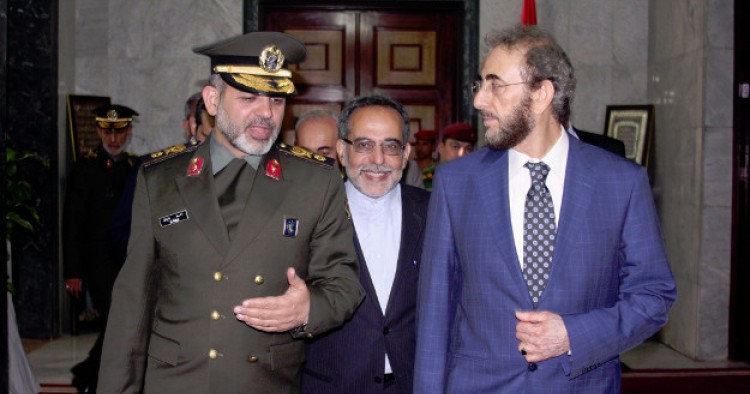A senior Iranian military official has said that the Trump administration will soon suffer the consequences of its “strategic mistake” of launching an attack against an army airfield in Syria. “This action by the Americans demonstrates support for terrorism and it was a very strategic mistake and they will face its consequences in the future,” Islamic Revolution Guards Corps (I.R.G.C.) Brigadier General Ahmad Vahidi. He claimed that the United States launched the military strike against the Bashar al-Assad regime because Washington and its regional allies have failed in Syria and the broader region and are confronted with a “strategic confusion.” Vahidi further stressed the U.S. strike will not alter Iran’s policies and actions in the region, and that Tehran will under no circumstances abandon support for the “resistance front” – a term Iranian leaders use for their regional proxies fighting Israel and the United States.
Comment: Vahidi’s remarks indicate that the Islamic Republic will not change its destabilizing role in Syria after the United States for the first time launched an assault against Iran’s ally Bashar al-Assad yesterday. Tehran has invested a great deal to rescue the embattled Assad regime in recent years and sees Syria as a vital conduit to continue to arm Hezbollah and Palestinian militant groups. For Iranian leaders, the fall of Damascus would mean not just losing a strategic ally, but also regional gains Tehran has acquired over the past decades by attempting to expand its ideological, political and military spheres of influence in the region.
Ahmad Vahidi is one of Iran’s most notorious military leaders. He served as the Minister of Defense and Armed Forces Logistics under the Ahmadinejad government. Previously, he was a senior commander of the I.R.G.C. and its elite Quds Force. In 2010, the U.S. Department of Treasury designated Vahidi for his ties to Iran’s nuclear and WMD programs. Vahidi is still wanted by Interpol in connection with a suicide bombing against a Jewish community center in Argentina in 1994, which killed more than 80 people. He is currently the president of Supreme National Defense University of Iran.
The Middle East Institute (MEI) is an independent, non-partisan, non-for-profit, educational organization. It does not engage in advocacy and its scholars’ opinions are their own. MEI welcomes financial donations, but retains sole editorial control over its work and its publications reflect only the authors’ views. For a listing of MEI donors, please click here.













